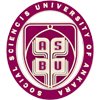Islamic Economics and Finance Master of Sciences Program
About Program
The importance of Islamic Economic and Finance has increased globally and this improvements was not only in Islamic countries but also increased in western countries. This importance has affected also some theoretical studies and practical implementations in this field. In addition, this new industry has affected participation banks in Turkey in positive way, also some conventional banks’ participative banking windows that work according to participative banking principles which offering Islamic financial products, also affected by this new industry and take steps towards implementing this new filed.
In our Islamic Economics and finance master program the students can acquire knowledge through this program about the Islamic law, Islamic economics and theoretical level in the field of Islamic finance, which meets the need for human resources in the Islamic financial industry.
In this way, the program aimed to contribute towards development of Islamic economics and finance industry, and to construct a specific economic and financial industry, which is based on ethical and social responsibility dimensions.
The education language in ASBU Islamic Economics and Finance Master’s Degree Program is English. The students are also encouraged to learn Arabic a second language.
Application Information and Admission Requirements
Applicants from these programs are welcome to apply: Theology / Islamic Studies / Religious Studies, Economics, Business Administration, Finance, Labor Economics, Econometrics, Financial Econometrics, Public Administration, Political Science, International Trade and similar programmes.
Applicants should have a minimum GPA of 2.50/4.00, a minimum score of 65 on ALES (Verbal or Equally Weighted) or an equivalent GMAT score (applicable for Turkish citizens), proven proficiency in English (A minimum score of 80 on UDS / KPDS / YDS/e-YDS/YOKDIL or having equivalent proficiency from International English Exams).
The success rating for program admission is calculated in a way to sum up %50 of Academic Personnel and Postgraduate Education Entrance Exam (ALES) score (applicable for Turkish citizens), and %20 of undergraduate GPA and %30 of the total score of oral and/or written exam. The rating is scaled on the basis of this final evaluation score.
The Master program’s curriculum is consists of seven courses with three credits, three elective courses and one free elective course, a seminar course, an academic specialty course and a thesis study. Total courses offered are 21, and the ECTS credits including the program thesis are 123 in total. Credit and evaluation are determined within the framework of ASBU Graduate Education Regulations and its Senate decisions.
Program language is English and following courses are offered:
Microeconomics
Financial Mathematics
Advanced Topics in Macroeconomics
Analytical Islamic Economics-I
Islamic Economics Models
Islamic Finance-I: Contracts
Islamic Finance-II: Economics of Islamic Finance
Fiqh al-Muamalat
Seminar
Academic Specialization
History of Muslim Economic Thought
Islamic Finance-III: Financial Markets and Securitization
Critique of the Neoclassical Economics
Analytical Islamic Economics-II
Public Finance, Western And Islamic Perspectives
Project Evaluation And Financial Analysis
Advanced Topics in Finance
Islamic Finance III, Financial Markets And Securitization
Ottoman Economic History
Theory and Practice of Islamic Finance Regulation
College Algebra
Linear Algebra
Probability And Statistics
Inference Theory & Econometrics, I
Introduction to Usul Al-Fiqh
Introduction to Fıqh
Islamic Economics and Finance (IEF) Master and Ph. D. programs in Arabic Language will be offered next semester.
